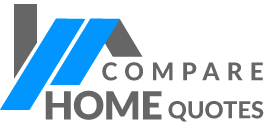Solar Panels for Energy Savings: Compare contractors and prices
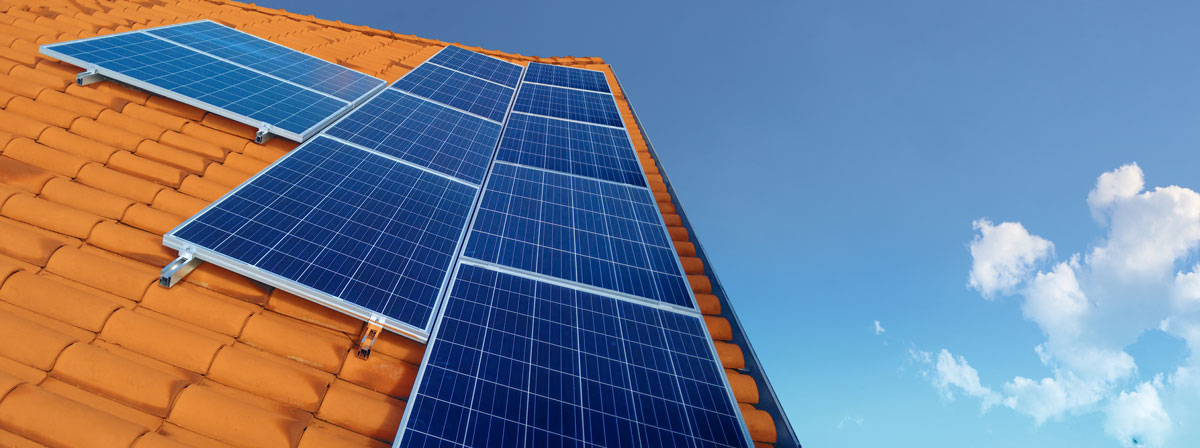
Solar panels are becoming popular in Canada to generate electricity and heat to lower the cost of energy and reduce pollution.
Solar panels generate renewable energy from the sun and lower your monthly electricity bills. If you plan on selling your house in the near future, installing a solar power system can also increase its value.
Solar power systems don’t need a lot of maintenance and after the initial installation cost, you will be spending very little on repair or maintenance work.
If you are considering the installation of solar panels in your home, get free and no-obligation quotes using our short online form!
What are solar panels and how do they work?
There is so much information about solar panels and solar energy out there but unfortunately, many people still don’t understand or are misinformed.
We would like to give you more details about the pros and cons of installing solar panels and their real cost.
Solar panels have extensive economic, environmental, and social implications. While no technology is absolutely perfect, the solar energy industry included, many of the negative things said about it are inaccurate.
Let’s talk about the advantages and disadvantages of solar panels and solar energy systems so that you can evaluate if it is right for you.
The Benefits of Solar Panels and Solar Power Systems
# 1: Reduce carbon emissions
Carbon dioxide is being released at catastrophic levels due to the use of coal and other energy sources. As an individual, is there something more we can do to help?
Many homeowners are concerned about the environment and want to help reduce carbon emissions. Solar panels produce lower levels of carbon emissions per unit of energy used compared to natural gas or coal.
We all want to fight climate change. Installing solar panels is a significant step in doing this so we can have a better world.
#2: Savings
Savings from the use of solar energy is a definite advantage. Although the investment required to install a solar power system in the home can seem substantial, it will pay for itself over time. Because you will be using less conventional energy, you will see lower distribution and transmission fees and consequently, lower monthly electricity bills.
A solar power system can last as long as 25 years. Imagine the savings you will be making each month and over 25 years!
# 3: Independent Energy Source
Self-sufficiency has never been more important than now. The knowledge that you own your energy source gives you power and peace of mind. Further, the knowledge that your energy comes from a sustainable source is very satisfying.
# 4: Increase in home value
In many cities in Canada, a home with a solar power system enjoys a higher property value. If you ever sell your house, your solar power system will be included in estimating the home’s selling price.
A home solar power system is a great investment that will also boost the value of your property.
Disadvantages of Solar Panels and Solar Power Systems
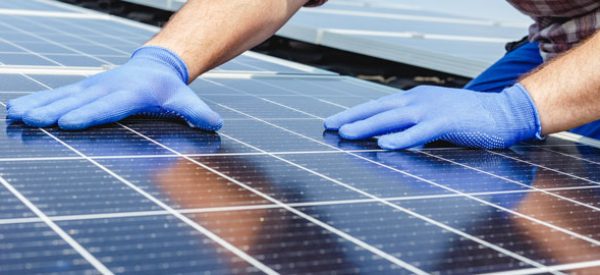
You may be wondering if there are any disadvantages to solar panels. Here are a few:
High initial investment
For many people, the initial investment for solar panels is a huge disadvantage. The typical cost is between $10,000 and $18,000.
However, if you think about the long-term savings from this type of system, the investment is clearly worth it.
Experts will say that solar panels should not be considered a cost but an investment that pays back over time. It will continue to make money for you for many, many years.
If you compare buying a car that depreciates in value over time with installing solar panels, you will be happy to know that a solar power system can save you hundreds of thousands of dollars over time. No other home improvement project can top the amount of savings you can make!
Aesthetics
When it comes to aesthetics, perspective differs from person to person. For some people, the appearance of solar panels in the home look attractive while to others, it may not be.
The good news is that the designs of solar panels have improved in the last few years and more options are available to homeowners. Dark-colored solar panels can now blend in more easily with dark shingles.
Furthermore, new technologies have allowed the installation of solar panels to have a nicer finish because cables are not used. A new technology called racking also allows solar panels to blend in with the roof.
All in all, the benefits of installing solar panels in the home far outweigh any disadvantages. There are also government incentives in provinces such as Ontario, British Columbia, Saskatchewan, Alberta, and more to lower the required investment.
For example, the Canada Greener Homes Grant provides up to $5,000 for homeowners who make energy-efficient retrofits, including the installation of solar panels.
Short guide to solar panel installation
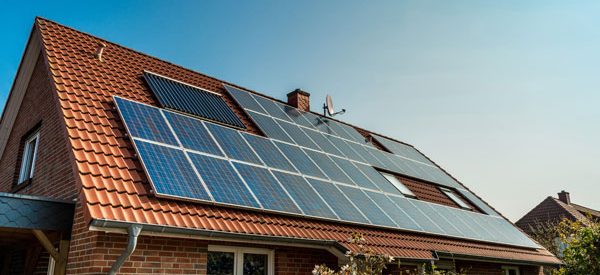
If you are planning to install a solar power system in your home or business, this short guide will provide you with the important details you must know.
How many solar panels do you need to buy?
You will need to consider 3 important factors – your location, your home’s orientation, and the amount of energy you use monthly.
Your monthly energy bill will indicate your monthly usage, even a history of your usage in the last couple of months.
There is no one-size-fits-all estimation for how many solar panels are needed per house. Factors such as tilt, azimuth, shading, among others, are evaluated on a case-to-case basis. For instance, steep roofs that face south produce more energy compared to shallow roofs that face west. If your location is less efficient, you can compensate for that with the addition of more solar panels.
Solar panel providers will be able to advise you on the number of solar panels you will require based on your location and the specifics of your home.
How much do solar panels cost to install?
The cost of installing a home solar power system varies widely. The primary factor that determines the amount of your investment is how much energy (kWh) you require. If your goal is to offset more energy, you will need more solar panels.
Most homes use an average of 4kWh to 15kWh. The average price for a home solar power system ranges from $15,000 to $30,000 for a complete installation. This price is just an estimation and will depend on the factors already mentioned above.
Cost and Economies from Home Solar Power Systems
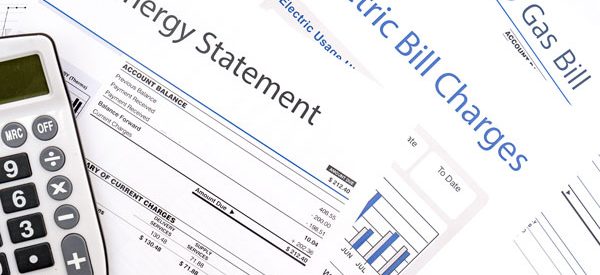
It is important to understand the costs related to the installation of a home solar power system and how this can be offset against electricity use. This plays a big role in the decision-making process.
The process of buying solar panels is a lot like renting a house or a car. You will need to pay an upfront fee that is reduced over time and becomes quite affordable over the long term.
The cost of electricity has gone up drastically in the last few years. If this trend continues, installing a solar power system now will enable you to reap bigger economic benefits over time.
In fact, the cost of not installing a solar power system and paying for your electricity at full price for the next few years is greater. You can save tens of thousands of dollars on your energy bill for the next 20 to 25 years.
The return-on-investment period for solar panels varies based on the size of the installation, location, and how much energy you consume.
How do solar panels work?
Solar panels may seem complicated but they are quite simple if you take the time to understand their basic components.
Transforming solar energy into usable energy in your home involves 4 steps:
1. Energy from the sun shines on the solar panels on your roof and a direct current (DC) is generated.
2. The DC current from the solar panels goes to the inverter and is transformed to alternating current (AC).
3. Solar energy is then moved across your home for your use.
4. Excess power is returned to the grid and is credited to you by the power company.
A solar power system tied to a grid is a convenient and popular way of generating solar energy. This means your system is connected to your electrical provider (EPCOR, BC Hydro, SaskPower, etc.)
You recoup the cost of your solar panels directly from your electrical system.
It is also possible to have an off-grid solar power system if you don’t wish to use carbon-intensive fuel or if your home is not easily accessible by a power grid.
The primary difference is that the energy you generate is stored in a battery bank. Off-grid solar panel installations cost $20,000 or more.
How much can I save with a solar power system?
Generally, a homeowner can save from 20% to 100% of his monthly energy bill. Energy use from one person to another differs and so does the amount of savings you can make.
In Saskatchewan and Alberta, the average homeowner uses about 7,000 kWh per annum. This can be produced roughly by 16 solar panels. This means a home can be electrically independent with 16 solar panels.
Installation time for home solar panels
Solar panel installations can be finished in just one day! Contractors will act quickly when you ask for your quotes and you can start generating clean energy in just 2 weeks.
Many residential solar energy installations can be completed in as little as one day!
What happens to solar panels if there is snow or hail?
Many homeowners worry about snow and hail but snow does not have a lot of impact on solar panels. The panel’s slope will help to prevent the snow from settling and the current running through the panels will not be affected.
Furthermore, the energy generation and payback period is calculated per year and comes during the spring, summer, and fall period.
In case the snow settles, the additional energy generation will play a small part since solar radiance is lower during winter. You don’t have to worry about clearing snow from your roof and risking injury or accidents.
Regarding hail, solar power systems are designed to withstand severe hailstorms in Canada.
What are the best conditions for solar panels?
The most ideal roof for a home solar panel faces south with a slope close to the regional latitude. In Alberta, solar panels at 45 to 53 degrees are great although slopes from 18 degrees and above still work very efficiently. Even shallow roofs can still be efficient with a minimum annual production dropping 10% or less.
In some cases, roofs facing west and east can also be advantageous.
In short, majority of homes can use renewable energy and our partner contractors will be happy to work with you to make your investment as viable as possible.
How long do solar panels last?
Providers offer different warranties for the various components. The solar panels usually have a warranty of 25 years for performance and 12 years or more for material parts.
Do I still pay for my electricity bill if I install solar panels?
You will still be paying for your electricity bill with your provider but I will be substantially less. It is very possible to completely offset your electricity during the summer, spring, and autumn months if you have a fairly large system.
At night, since the sun is not shining, you will be getting electricity from the grid. The idea is for your system to generate energy that will be used to offset the electricity you import from the grid.
We hope we have given you more information you can use to plan your project. Our partners will be very happy to answer more questions.
Just request your free quotes to start planning the installation of your home solar power system.
Compare solar panel contractors and prices
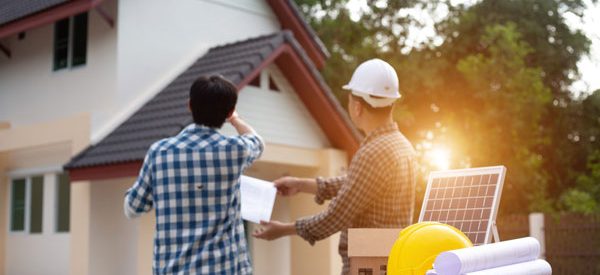
We know that solar panel installations can cost
a lot of money. However, consider the huge savings you can make from this
investment.
To ensure that your money gets the most value,
compare solar panel contractors and their prices to find the best offer. Please
keep in mind that the goal is to find the right price and the best contractor
who will provide you with excellent customer service and workmanship.
Fill
out the short form below to receive FREE and NO
OBLIGATION quotes so you can compare
and save time and money!
Installing
a home solar power system can be the best decision you have ever made.
We can help you find the best contractor for your needs.
Copyright© 2026 Compare Home Quotes.
Oolong Media


